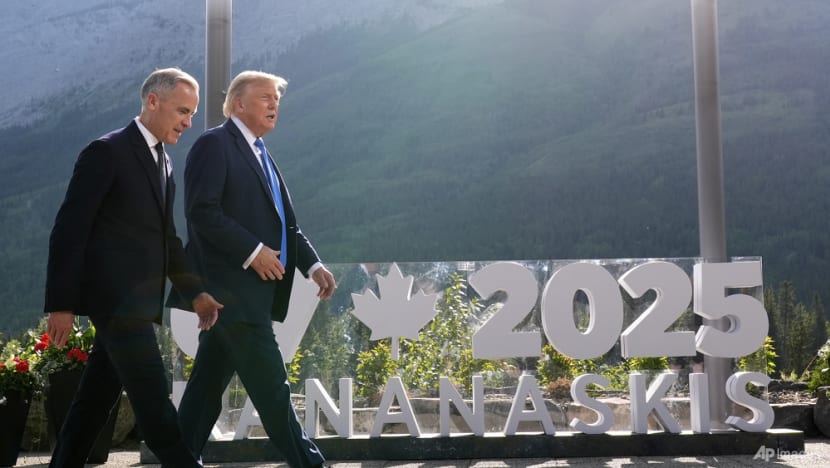Canada warns of more duties on US steel and aluminum if no deal is reached

OTTAWA: Canada could increase counter-tariffs on US-produced steel and aluminum if it fails to reach a broader trade agreement with President Donald Trump within 30 days, Prime Minister Mark Carney said on Thursday (Jun 19).
Speaking at a press conference, Carney said Canada would adjust its existing countermeasures on Jul 21 depending on progress made in the ongoing trade talks with Washington.
"Canada will adjust its existing counter-tariffs on US steel and aluminum products on July 21 to levels consistent with progress made in the broader trading agreement with the United States," Carney said.
TARIFF DISPUTE ESCALATES
Trump raised import duties on steel and aluminum to 50 per cent from 25 per cent earlier this month, a move that triggered backlash from Canadian industry leaders and demands for a strong response. Canada is the largest exporter of these metals to the United States.
Carney said he had agreed with Trump to try and finalize a new economic and security agreement by Jul 21. Until then, Canada will refrain from immediately matching the US hike in order to allow for progress in the negotiations.
In March, Canada had already imposed 25 per cent retaliatory tariffs on steel products worth C$12.6 billion and aluminum worth C$3 billion.

PROCUREMENT AND DOMESTIC MEASURES
As part of Thursday’s announcement, Carney unveiled new procurement rules that will prioritize domestic producers. Canadian firms and international partners with reciprocal, tariff-free access will now be allowed to compete for federal contracts involving steel and aluminum.
The Canadian government will also implement new tariff-rate quotas set at 100 per cent of 2024 levels for steel imports from non-free trade agreement countries. This is intended to stabilize the domestic market and prevent harmful trade diversion.
"We are united in working on all forms of support for the industry... that starts with buying Canadian steel and aluminum for federal projects," Carney said.
Canada exports more than 90 per cent of its total steel and aluminum to the US, and imports about one-fifth of US steel and half of its aluminum, according to the Royal Bank of Canada. This underscores the deep integration of metals trade between the two nations.
Under Carney’s leadership, Canada has launched major infrastructure initiatives—from defense to energy and housing—that are expected to require massive amounts of steel and aluminum.
SUPPORTING DOMESTIC INDUSTRY
Carney said the government would also favor the use of Canadian steel and aluminum in Canadian-made products. A new task force will be created to monitor the impact of tariffs on steel and aluminum markets and recommend responsive measures as needed.












